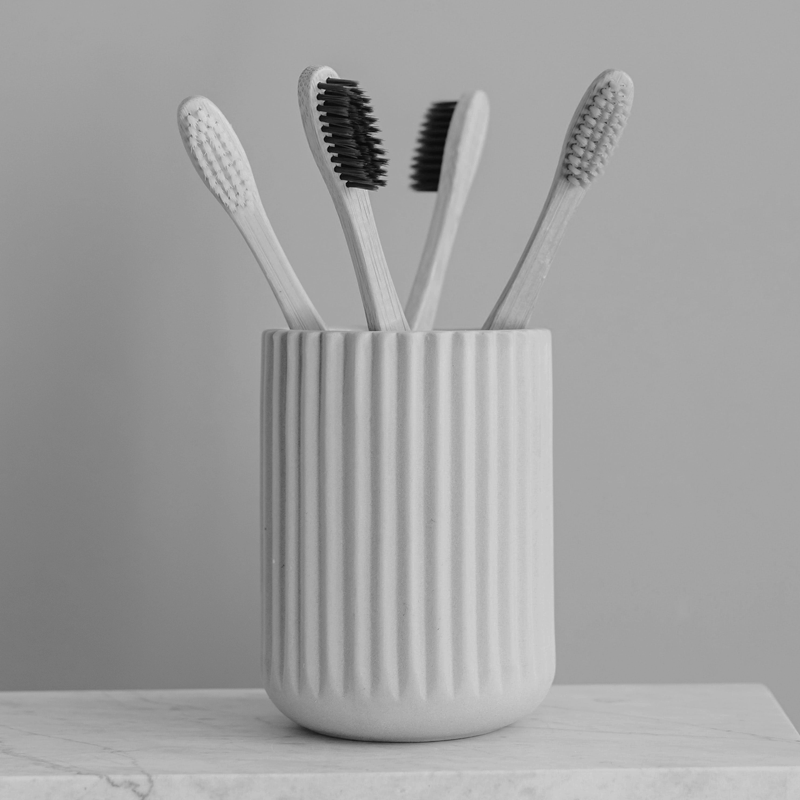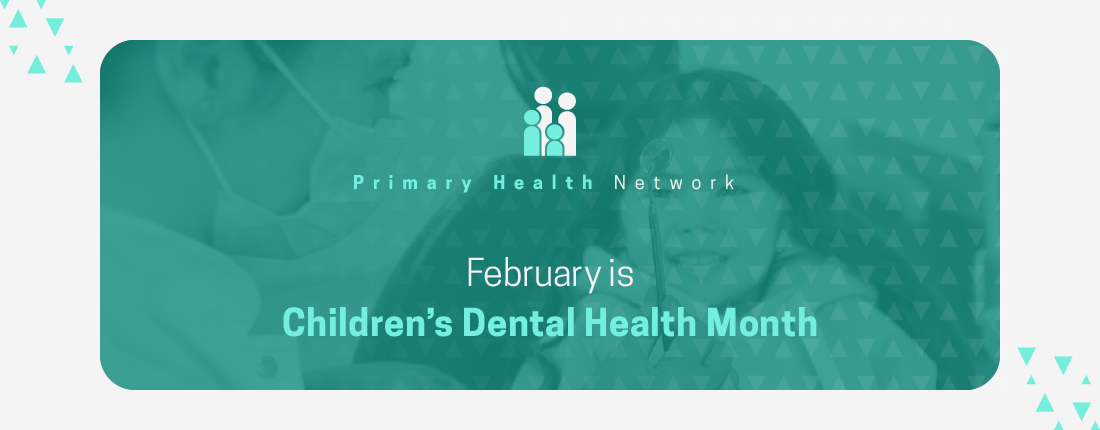Every February, the American Dental Association (ADA) promotes National Children’s Dental Health Month to showcase the significance of good oral health. Instilling positive dental habits early on can lay the foundation for a healthy dental future. Also, promoting good oral hygiene and routine dental check-ups can lead to better school performance.

This year, we asked our Dental & Dental Hygiene Regional Director, Lauren Shobel, for advice on fostering healthy dental habits. Let’s learn how to protect our children’s teeth from cavities and oral diseases together during Children’s Dental Health month!
Children’s Dental Health Tip | Care for Your Child’s teeth from the start
- Baby teeth, also known as primary teeth, start erupting anywhere between 6-12 months of age.
- Before that first tooth pops up, begin oral healthcare with a clean, wet washcloth to clean the gums after feedings.
- After the first teeth come in, use a finger brush or a small baby toothbrush to brush with water.
But Don’t Baby Teeth Fall Out?
Yes, while baby teeth do fall out, it is just as crucial for us to practice good oral hygiene. Your child may lose their first tooth around age 5-6. This fact means your child will have these teeth for a bit before their permanent adult teeth come through. Consistent oral health routines can build a strong foundation for their adult teeth and prevent diseases while they are young.

Why Should We Start Oral Health Routines at a Young Age?
Our teeth play an essential role in eating and speech/language development. Baby teeth also hold the space for adult teeth to come in! These functions make it vital to keep our children’s baby teeth clean and healthy. Since kids love routines, starting this foundation initiates healthy oral habits as they grow. This groundwork, in turn, will help prevent cavities, gum disease, and other dental issues down the road!
Healthy Tips for Children’s Dental Health Month
- Schedule your child’s first dental visit at or around age 1! This first visit is for caregivers to learn all about caring for baby teeth.
- The Tell-Show-Do method works great for infants and toddlers.
- Tell them what you’re doing, show them how you brush, and brush their teeth – remember to make it fun!
- Kids love to copy what their caregivers do, so make it fun and show them by brushing your teeth yourself.
- Caregivers should help with daily brushing until they’re 8.
- Brushing charts work great for older kids ages 3-12
- Using stickers to display progress on a chart is a fun way to engage with your children.
Did You Know Diet Plays a Big Part in Keeping Our Teeth Healthy?
- No milk or juice bottles at bedtime – this can cause baby bottle tooth decay.
- Avoid or limit sugary drinks, carbonated drinks, gummy candies, and fruit snacks.
- Opt for healthier snack options like cheese, yogurt, crunchy veggies, and water!

Children’s Dental Health Tip | What Can Cause Cavities?

Won’t cause cavities:
- Water
- Cheese
- Crunchy Vegetables
- Apples
- Nuts & Nut Butter
- Eggs

Cause cavities easily:
- High sugar foods
- Candy
- Juice
- Soda & Sport Drinks
- Crackers
- Pretzels & Chips
Prevention is key! Remember to visit your dentist and dental hygienist every six months to keep a healthy smile. Ask your dental providers for helpful tips and advice if you have questions about your child’s dental health. Learn more about our dental hygiene & dental services.
Keep In Touch!
Stay tuned for our future events & initiatives by visiting our Facebook page, and website, or by calling 1.866.276.7018.
